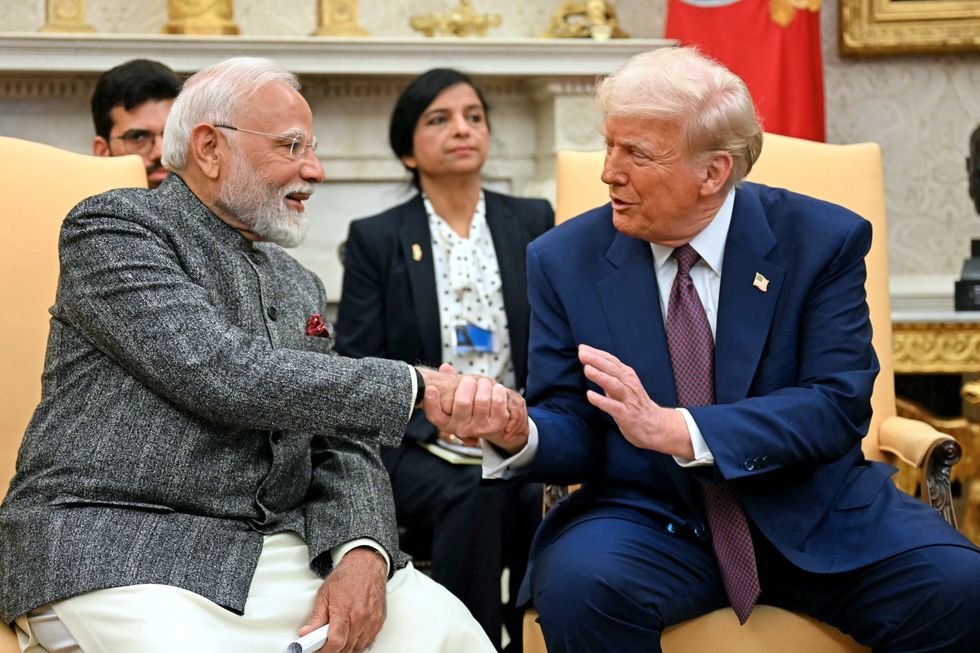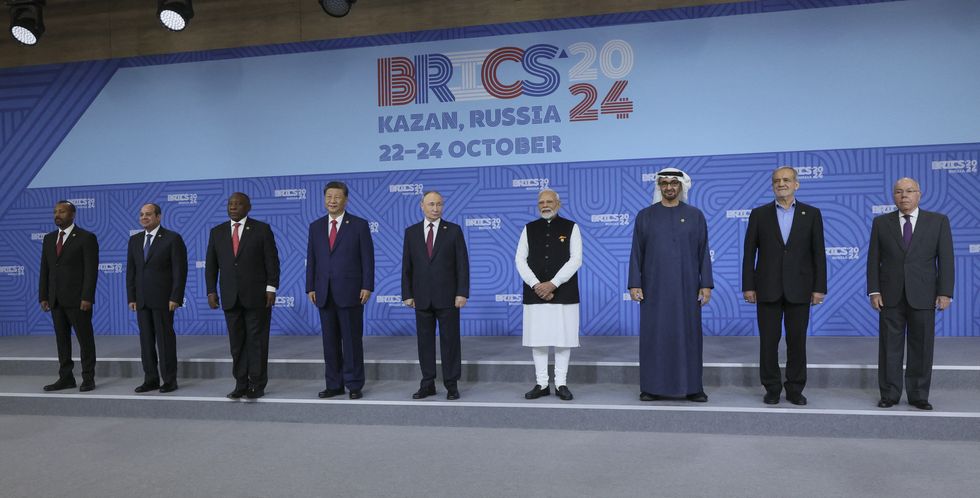INDIA’S external affairs minister, Subrahmanyam Jaishankar, has explained how prime minister Narendra Modi’s government is trying to develop a positive and pragmatic relationship with US president Donald Trump.
Jaishankar said Modi, who was in Washington DC last month, and the US president “have had a very open conversation, and the result was an agreement for a bilateral trade agreement. Our trade minister (Piyush Goyal) is in Washington doing exactly that,” the foreign minister said.
Jaishankar was being interviewed in London last Wednesday (5) by Bronwen Maddox, director of the Royal Institute of International Affairs at Chatham House. She is a former foreign editor of the Times and also Prospect.
Jaishankar, 70, who has been external affairs minister since May 2019, is a career diplomat who is now a member of the ruling Bharatiya Janata Party (BJP). He is also a member of India’s upper house, the Rajya Sabha.
He was brought up in a Hindu Tamil family and entered the Indian foreign service in 1977. He has served as high commissioner to Singapore (2007–2009) and as ambassador to the Czech Republic (2001–2004), China (2009–2013) and the US (2014–2015). He has also served in other diplomatic assignments in Moscow, Colombo, Budapest and Tokyo.
Exactly how Trump frames his tariff policy in regards to India remains to be seen. He has threatened to impose tariffs on imports from India, which exceed the value of US exports to the country.
On the other hand, Modi has tried to cultivate a close relationship with Trump. In February 2020, Modi organised a rally for the US president, attended by 100,000 people in the world’s largest stadium built in Ahmedabad in Gujarat. That was during Trump’s first term.
Maddox asked Jaishankar what he made of Trump’s first 41 days during his second term
“It’s interesting,” the minister quipped. He added that Trump had done what he had said he would do.
“So I’m a little surprised that people are surprised,” he observed.
In analysing the impact of what Trump had done so far, he was far from negative.
“Now that said, is it good for India in many ways?” he wondered.
“I would say, yes,” he answered himself. “My prime minister was in Washington about two weeks ago. I had accompanied him. I was myself there for the presidential inauguration (when he was seated towards the front and stood up and enthusiastically applauded Trump’s speech on several occasions). And when I look at our interests and our expectations of the relationship, I think there’s a lot of promise we see there.

“Conceptually, I think we see a president and an administration which, in our parlance, is moving towards multi-polarity. And that is something which suits India. If I were to look at some of the big priorities of this president, many of them actually work for us. He seems to be, for example, committed to keeping energy prices reasonably affordable and stable. We welcome that.
“He is putting a lot of emphasis on the development of tech, on the use of tech as a game changer in global politics. I think that offers (India) a lot of possibilities. He appears open to connectivity initiatives of a certain collaborative nature.”
Jaishankar said “American interests are now more sharply defined, and I suspect so are European”.
He described the British position as “non-aligned” between the US and Europe. Since non-aligned is an expression that has traditionally been used in the past to describe India’s foreign policy, it is possible Jaishankar was teasing Britain.
More seriously, he gave an emphatic assurance there was no plan by the countries that make up BRICS – Brazil, Russia, India, China and South Africa – to develop another currency for international trading as a challenge to the dollar.
He stated: “I don’t think there’s any policy on our part to replace the dollar. At the end of the day, the dollar is the source of international economic stability, and right now, what we want in the world is more economic stability, not less.
“In all honesty, I don’t think there’s a unified BRICS position. BRICS members – and now that we have more members (there are now 10 full members and nine partner nations) – have very diverse positions. The suggestion or the assumption that there’s some united BRICS position against the dollar is not borne out by facts.”
Jaishankar would not put an ideological label on BRICS. “We are a very diverse group. It was a sense among very major powers that they were not getting their share of global organisations and decision making, that they will be better off if they came together and sent a collective message. That is how BRICS started.”
Jaishankar believed the world was moving towards “multi-polarity”, but that did not mean “multi-polarity has to translate itself into a currency. Even when I was explaining multi-polarity, my point was that if there are multiple players, it’s not that India’s relationship with each player is the same. There are different considerations in each relationship for us right now.

“The US is clearly the largest economy in the world, almost the fulcrum, or the key player, in the global international architecture. Our own relationship (with the US) is growing. It’s very positive. We do believe today that working with the US and strengthening the international financial and economic system should be the priority. Both our strategic assessment as well as our sense of what is required today by the international economy will guide our thinking on this matter.”
Agreeing to a bilateral trade agreement with the US was “part of the globalisation of India. Where the role of the dollar is concerned, we have no interest in undermining the dollar. A lot of the problem in our region (the global south) is the lack of availability of the dollar. Many countries want to see more dollars.”
Jaishankar said there had been American understanding of India’s decision to buy discounted oil from Russia.
“We’ve always been very honest about it,” he added. “And I must say, even in 2022, we discussed it at some length with the American administration (when Joe Biden was president). And I will say this to their credit, they were also quite understanding about it.”
He provided an unorthodox explanation for how India’s purchase of Russian oil helped stabilise the energy market and the world economy.
He referred to “the whole energy debate. The fact is that after 2022 you did not want the Ukraine conflict to trigger a global energy crisis. We did not want to see global inflation, which meant that somebody had to buy Russian oil if the oil markets had to be kept at a reasonable price.
“There was an understanding about need for that. People have been very sober and I would say sensible about (our) insulating the global economy from that particular aspect. We’ve been very honest about it, because I would rather tell our partners and the rest of the world up front what we are doing.”
India’s average import tariff on US goods stands at about 12 per cent – far higher than the US average of 2.2 per cent on Indian imports.
The US is India’s largest export destination, accounting for nearly 18 per cent of total exports. If Trump imposes retaliatory tariffs or revokes more trade privileges, Indian exporters could face severe pressure. It is worth pointing out that officially the two governments have agreed to negotiate the first stage of a multi-sector Bilateral Trade Agreement (BTA) over the next seven to eight months, part of a drive to achieve mutual trade worth $500 billion (£386.8bn) by 2030.
US commerce secretary Howard Lutnick has outlined the broad aim: “It’s time to do something big, something grand, something that connects India and the United States together… on a broad scale,not product by product, but rather the whole thing.”


















